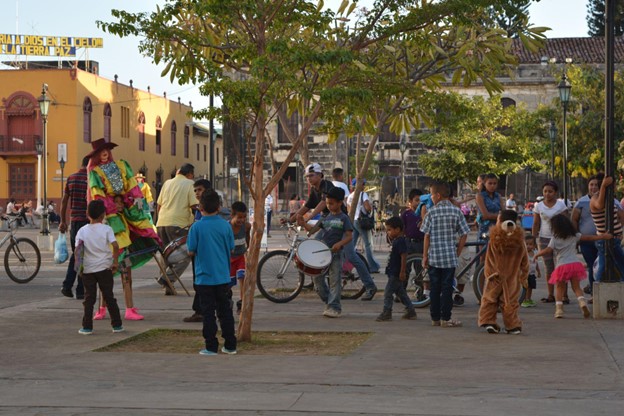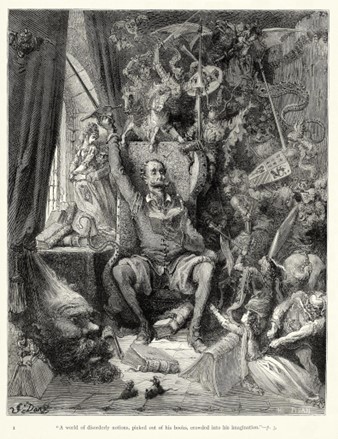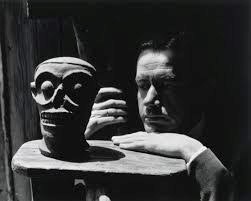Current Courses
The Spanish Department offers a variety of courses in the Spanish language at all levels, and in Hispanic literature and culture, visual arts, cinema, politics, history, and religion. Language courses combine the development of oral, grammar and writing skills with discussion of films, theatre, short stories, poetry, art, and newspapers.
Advanced courses are taught in both Spanish and English. Those taught in English are cross-listed as Spanish (SPAN) and Literature (LIT) and offer the opportunity to read and discuss the materials in Spanish for those taking the class for Spanish credit. Below you will find the list of current courses Fall 2023/Spring 2024.
Fall 2024

SPAN 111 Beginning Spanish 1
One unit semester course. In this language course, students will develop essential listening, speaking, reading, and writing skills in Spanish. Spanish grammar instruction is supplemented with study of cultural materials from Spanish-speaking countries. Conference.
SPAN 211 Intermediate Spanish 1
One unit semester course. In this language course, students will develop essential listening, speaking, reading, and writing skills in Spanish. Spanish grammar instruction is supplemented with study of cultural materials from Spanish-speaking countries. Prerequisite: Spanish 112 or placement by examination. Conference.
SPAN 312 Advanced Language and Culture: Speculative Fiction
One-unit semester course. The category of speculative fiction refers to a diverse set of nonrealist approaches to narrative, including science fiction, horror, fantasy and the fantastical, utopia and dystopia. In this course, we will discuss how speculative fiction in the Spanish-speaking Americas draws from and hybridizes a number of robust regional genres (e.g., magical realism, the Latin American fantastic, horror and cyberpunk). We’ll consider how authors and filmmakers use these genres to critique and reimagine many facets of modernity, including repressive political regimes, digital technologies, neoliberalism and ecological catastrophe. Alongside this thematic focus, this course is designed to refine and enhance language skills. It includes a focused consideration of problem areas of Spanish language and an introduction to various rhetorical forms. In addition to oral practice in class, students will write numerous short essays. Prerequisite: Spanish 212, equivalent with the consent of instructor or placement by examination. Conference.
SPAN 312 Advanced Language and Culture: Representations of Childhood in Spanish
Literature and Cinema
This is an advanced Spanish course geared toward solidifying students’ command of grammar and involved stylistic issues. Advanced language skills are built through weekly grammar exercises, along with study and discussion of a corpus of Spanish literary texts and films whose plots mainly revolve around childhood. The young protagonists portrayed in this varied corpus represent radically different conceptions of familial conflict, the relationship between family and community, the childish imagination, human evil, and social corruption. By engaging with this subject matter both orally and in writing, students develop their ability to express complex thought in Spanish. Prerequisite: Spanish 212, equivalent with the consent of instructor or placement by examination. Conference.
SPAN 321 Theory and Practice of Hispanic Literature
One unit semester course. This course is designed to give students a theoretical, historical, and cultural framework for the more advanced study of Spanish and Spanish American literature. It will include considerations of genre, reception, and critical theory. Students will be responsible for undertaking close readings of the texts as well as research projects. Prerequisite: Spanish 212, equivalent with the consent of instructor or placement by examination. Conference.

SPAN 384/LITS 397 Latin America’s Revolutionary Century
One unit semester course. Throughout the twentieth century, Latin America was one of the epicenters of insurgent and revolutionary struggles in the world. These represented, regardless of their ideological differences, the entry of the equality principle in national spaces that had mostly imagined and structured themselves as two-tiered societies in which a large segment of the population—Indians, minorities, and even women—had been, for all practical purposes, systematically excluded. By focusing on the cultural production (novels, films, essays, etc.) related to four revolutionary constellations—the Mexican and Cuban Revolutions, the Central American guerrillas, and the Zapatistas—this course aims to explore and analyze the languages of insurgency and counterinsurgency, the figure of the revolutionary and guerrilla fighter as a political subjectivity, and the relation between politics and aesthetics. Primary texts will be supplemented with historical and theoretical readings. Prerequisite: Spanish 321 or consent of the instructor. Conference. Cross-listed as LIT 397.
SPAN 470 - Thesis
Two-unit yearlong course; one unit per semester.
SPAN 481 - Independent Reading
Variable (one-half or one)-unit semester course. Prerequisite: approval of instructor and division.
Spring 2025

SPAN 112 Beginning Spanish II
One unit semester course. This language course continues the development of essential listening, speaking, reading, and writing skills begun in Spanish 111. Students will learn enough language to handle a meaningful conversation, read short literary texts, and speak and write about their experiences, thoughts, and opinions. Spanish grammar instruction is supplemented with study of cultural materials from Spanish-speaking countries Pre-requisite: Spanish 111 or placement by examination. Conference.
SPAN 212 Intermediate Spanish II
One unit semester course. The primary goal for this course is to increase students’ fluency in both spoken and written Spanish. The course continues the systematic review of Spanish grammar begun in Spanish 211, yet places more emphasis on the spoken and written analysis of literary and cultural texts from the Spanish-speaking world. Students who complete Spanish 212 will acquire the necessary fluency to take advanced literature or film classes in Spanish, or to study abroad in a Spanish-speaking country. Pre-requisite: Spanish 211 or placement by examination. Conference.
SPAN 344 Visual Art in Spanish Baroque Literature
One unit semester course. This course studies the relationship between visual art and literature in early modern Spain. In an epoch in which the production of images has attained unprecedented cultural importance, literature redefines its aesthetic agenda, both modeling itself after and rivaling visual art. Considering various plays, poems, and novellas alongside relevant paintings, emblems, architectural works, and sculptures, we reflect upon how the interactions among these different art forms serve to mobilize audience emotion and comment on gender and class tensions. Also discussed are mounting anxieties about the role of art in a society marked by political crisis. In particular, we think about how the celebration of iconocentric culture is undercut by critical views of images as dangerous vehicles of moral and sexual depravity. Authors and artists studied include Teresa of Avila, Cervantes, Zayas, Calderón de la Barca, Guillén de Castro, Velázquez, Titian, El Greco, and Rubens. Conducted in English. Prerequisite for Spanish credit: Spanish 321 or consent of the instructor. Conference. Cross-listed as LIT 391.
SPAN 377 Art after Dictatorship: Post-Franco Literature and Culture
One unit semester course. What happens to a culture when released from systematized repression? This course examines the creative explosion in literature and film produced in Spain after 1975, the year in which Francisco Franco died and his totalitarian regime ended.
Conference discussion will concern transformations that characterize the post-Franco era: the recuperation (or not) of historical memory, the emergence of a fluid conception of gender, and the creation of new forms of popular art. Particular attention will be given to the “movida,” the disruptive social and cultural transformations celebrated in the films of Pedro Almodóvar and others. Films and readings will include works by Almodóvar, Ventura Pons, Carmen Martín Gaite, Rosa Montero, Juan Marsé, and Eduardo Mendicutti. Prerequisite: SPAN 321 or consent of the instructor. Conference.
SPAN 382 Latin American, Caribbean, and Latinx Critical Theory
This course focuses on how Latin American, Caribbean, and Latinx critical theorists,
philosophers, writers, and artists have themselves imagined, conceptualized, and
understood Latin America, the Caribbean, and the U.S. as geographical, cultural, social,
and political spaces. Topics will include race, ethnicity, gender, and indigeneity in the
Americas, as well as concepts and theoretical discourses such as indigenismo, mestizaje,
hybridity, latinidad, négritude, liberation philosophy, and postcolonial, decolonial, and
borderlands theory, among others. Readings will include theoretical and literary works,
as well as essays and films. Conducted in English. Students taking the course for Spanish
credit will read cultural and critical texts in Spanish when originally written in Spanish;
they will also write essays in Spanish. Students taking the course for Literature or CRES
credit will read will read cultural and critical texts in translation when originally written
in Spanish, and they will write in English. Prerequisite for students taking the course for
Spanish credit: Spanish 321 or consent of the instructor. Conference. Cross-listed as LIT
398 and CRES 338.
Spanish 470 - Thesis
Two-unit yearlong course; one unit per semester.
Spanish 481 - Independent Reading
Variable (one-half or one)-unit semester course. Prerequisite: approval of instructor and division.